How To Land an Entry-Level Software Engineering Job [7 Options]
![How to Land an Entry-level Software Engineering Job [7 Options]](https://www.springboard.com/blog/wp-content/uploads/2022/09/software-engineering-feaured-image-800x496.png)
In this article
- What Is Software Engineering?
- What Does an Entry-Level Software Engineer Do?
- Entry-Level Software Engineer Jobs
- Must-Have Skills for a Software Engineer
- How To Land an Entry-Level Job as a Software Engineer
- Resources To Find an Entry-Level Job as a Software Engineer
- FAQs About Getting an Entry-Level Job as a Software Engineer
In recent years, software engineering has become an increasingly sought-after career. The Bureau of Labor Statistics predicts that job growth for software developers will be much faster than average, with an expected increase of 22% in the next decade.
However, getting an entry-level software engineering job can be challenging. How do you grab the attention of prospective employers if you don’t have much experience? What job opportunities are there for entry-level software engineers?
This article will break down the process of breaking into the software engineering field. Read on!
What Is Software Engineering?

Source: Research Gate
Software engineering is the process of designing, developing, testing, and maintaining software. It’s a broad term that can be applied to everything from writing code for a website to developing complex software applications.
What Does an Entry-Level Software Engineer Do?

Source: Big Water Consulting
An entry-level software engineer is an individual who is just starting in the field of software development. They typically have little to no programming experience and often work on a team with more experienced engineers.
Their role might include debugging, writing code from scratch, or helping other team members with their projects.
Related Read: How To Learn Programming From Scratch
Entry-Level Software Engineer Jobs
Many entry-level software engineering jobs don’t require a degree or relevant experience, so if you’re just starting, don’t worry—you’ve got options.
Software Engineering Intern/Trainee
Software engineering interns are responsible for conducting research and development. They often work with other engineers to develop new products and improve existing ones.
Roles and Responsibilities

Source: Tools QA
Software engineering interns typically work on debugging and testing software applications. They’re often tasked with creating and updating documentation of the software development process.
One of the most challenging roles for software engineering interns is developing and testing prototypes of new software technologies.
Average Salary
Software engineering interns earn an average of $22.56 per hour or $52,661 yearly.
General Requirements
As a software engineering intern, you’ll need a strong understanding of computer science. You should be comfortable with the concepts of data structures and algorithms and also have a basic knowledge of programming languages like Java and Python.
You’ll also need excellent communication skills. You’ll be working closely with other team members, so it’s crucial to be able to clearly explain your ideas and contribute ideas to the team as well.
Junior Software Engineer
Junior engineers work closely with more experienced engineers and learn how to write code for real-world applications.
Roles and Responsibilities
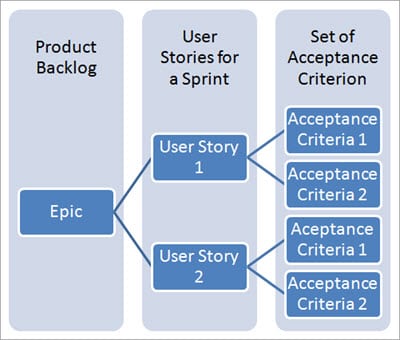
Source: Software Testing Help
The roles and responsibilities of junior software developers vary between companies but generally include:
- Analyzing requirements and documenting them in a way that other developers can understand
- Creating user stories and acceptance criteria to help define the scope of the project
- Identifying technical risks and proposing solutions to mitigate them
Get To Know Other Software Engineering Students
Dave McConeghy
Software Engineering Career Track Student at Springboard
Abdelkareem ElSharief
Software Engineer at Bread
Julia Ayres
Software Engineer at Northspyre
Average Salary
Junior software engineers with under a year of experience earn an average of $116,318 annually.
General Requirements
Junior software engineers should know how to use at least one programming language, but it’s best if they can work in multiple languages.
They should also be able to work with databases and APIs and understand how these things work together with other aspects of coding (like front-end design).
Junior Web Developer

Source: Openxcell
Junior web developers often work with a team of more senior developers to bring projects to life, and they can also work as part of a larger tech company or as freelancers.
Roles and Responsibilities
Junior web developers are responsible for creating and maintaining websites. They must be able to develop sites that are easy to navigate, clean and organized, and user-friendly.
Web developers must also be able to work with other employees, such as graphic designers and content editors, to create aesthetically pleasing websites while still meeting users’ needs.
Average Salary
The average salary of a junior web developer with up to three years of experience is $106,378 annually.
General Requirements
The preferred qualifications you need as a junior web developer depend on the company you’re applying to and what your role will be. Generally speaking, you should have a bachelor’s degree in software engineering or a related field. In addition, you should have at least some experience with HTML, CSS, and JavaScript.
If you want to work for a smaller company, you might not need an advanced degree in computer science. Instead, hiring managers may prefer applicants who have taken software engineering courses.
Junior Quality Assurance Engineer
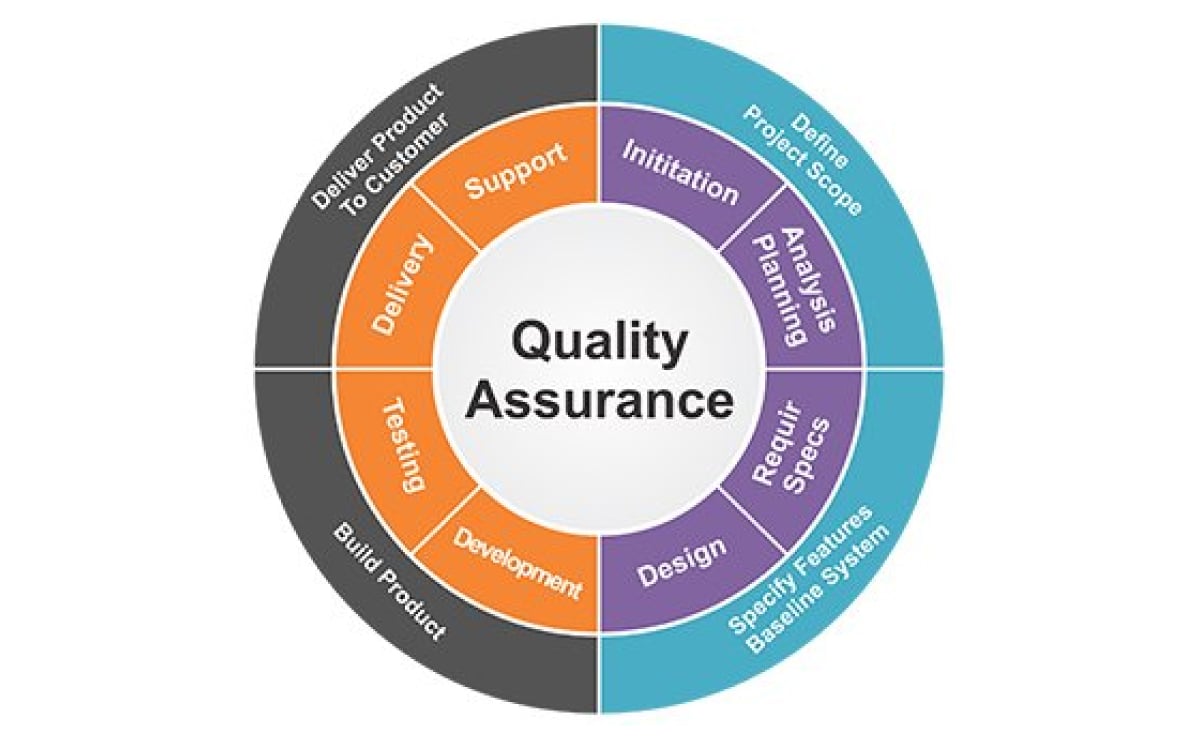
Source: Perfectial
A junior QA engineer will work with other employees to ensure that all products meet the standards set by the company.
Roles and Responsibilities
The junior QA engineer role can be challenging, as it involves testing new products, observing current products in use, and recommending how to improve them.
Junior quality assurance engineers may be asked to:
- Analyze customer feedback to identify potential defects and evaluate how they should be addressed
- Participate in regular meetings with upper management and other team members
- Research industry trends and recommend improvements accordingly
Average Salary
According to Indeed, the average salary of a junior QA engineer is $56,643 per year.
General Requirements
As a junior QA engineer, you’ll need a bachelor’s degree in computer science or a related field and an understanding of the industry and its protocols. You should also be familiar with the processes and policies of implementing quality assurance.
Software Test Engineer

Source: Vtest
Software test engineers work with developers to ensure that the software they’re creating works as intended and is ready for release.
Roles and Responsibilities
Software test engineers look for problems like crashes and errors in data processing but also check for issues that could cause security breaches or user privacy concerns.
A software test engineer will also work with developers to resolve any issues found during testing so that they can be fixed before releasing the product.
Average Salary
The annual average salary of a software test engineer is $91,448.
General Requirements
Besides having a computer science degree, you’ll need professional experience with programming languages like Java or Python, advanced knowledge of various operating systems like Windows or Mac OS X, and familiarity with testing techniques like unit tests (which provide proof of individual components) and integration tests (which ensure that all components work together).
Must-Have Skills for a Software Engineer
A tech career in software engineering requires technical and soft skills to succeed. Here are the software engineer skills you’ll need to succeed:
Technical Skills
Here are the technical skills you should master as an entry-level software engineer:
Programming Languages
This is a must-have skill for software engineers. The most common programming languages are Java and C++.
Data Structures and Algorithms
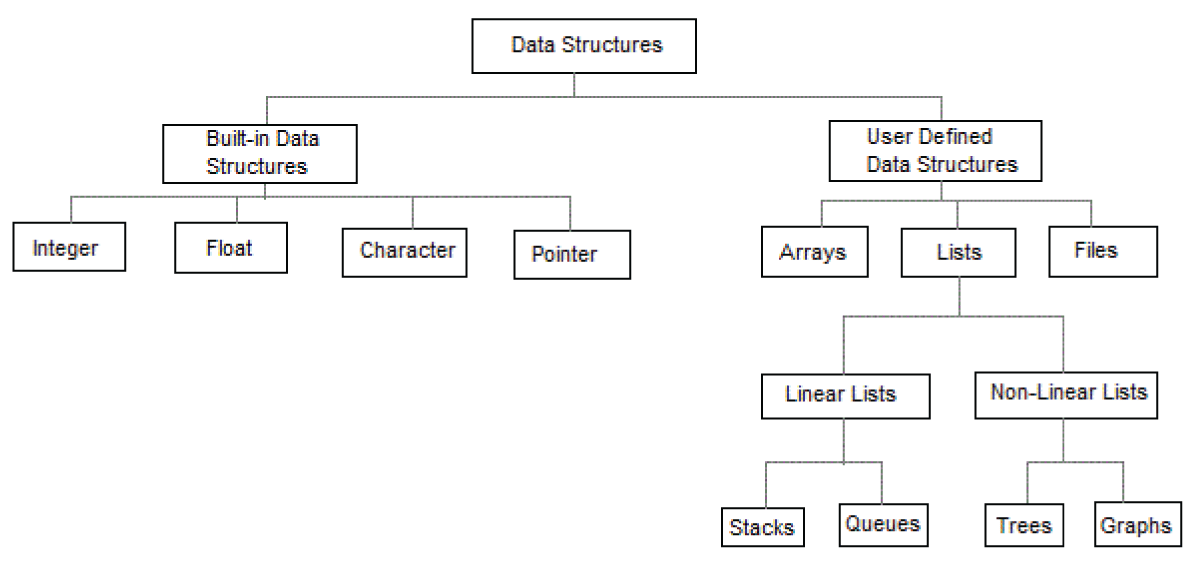
Both can be used in data science, database management systems, artificial intelligence, and machine learning.
Testing and Debugging
As a software engineer, you must be able to identify bugs and fix them down the line.
Object-Oriented Design (OOD)
This is a method of using objects and classes as a way to describe how code should be organized and executed. This makes it easier for programmers to understand how their code works and what it needs to function correctly.
Software Architecture
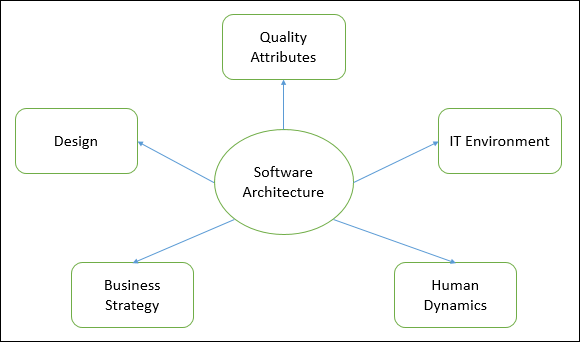
Source: Tutorials Point
Software engineers skilled in software architecture can more effectively build and manage large-scale, complex systems and applications.
Documentation
Software engineers must be able to communicate with stakeholders, other developers, and clients about the work they’ve done and how it works.
Soft Skills
Here are the soft skills you should master as an entry-level software engineer:
Problem-Solving
Software engineers must be able to identify and troubleshoot bugs in their code and understand how to fix those bugs.
Creativity
This allows you to think outside the box and develop innovative ideas.
Critical Thinking
The ability to see beyond the surface of things think critically, and question what you know is a valuable skill.
Flexibility
The field of software engineering is constantly changing, so it’s essential to be able to adapt your skills to the new challenges that arise.
Collaboration
Software engineers must collaborate with others, whether their team members at work or those who use their software.
Analytical Mindset
These skills are vital for software engineers because they allow you to think critically about systems and processes.
How To Land an Entry-Level Job as a Software Engineer
-
Education Is Key
-
Practice Makes Perfect
-
Gain Experience
-
Build Your GitHub Profile
-
Develop a Strong Network
-
Find a Mentor
-
Research the Company You’re Applying to and Tailor Your Resume Accordingly
As a software engineer, getting your foot in the door can be challenging but not impossible. There are many ways to land an entry-level job as a software engineer. Here are some options:
Education Is Key
One of the best ways to land an entry-level job as a software engineer is through education.
University Degree
A computer science or software engineering degree can be an excellent way to get your foot in the door at a top-tier tech company. It can also be the ticket to a lucrative job with high growth potential.
Certified Course
Certified software engineers are in high demand and earn more than their non-certified counterparts. That’s because certified engineers have demonstrated their proficiency with the latest technologies and best practices, which makes them particularly attractive to hiring managers. Additionally, a software engineering certification is a great way to gain experience in your field and show off your skills and knowledge.
Bootcamp
If you pursue a bootcamp, you’ll learn how to code in an immersive environment with lots of support from your peers and instructors. You’ll also learn the fundamentals of computer science and programming languages like Java or Python.
Practice Makes Perfect
You should always practice and improve your coding skills as a software engineer. You’ll also need to keep your skills up to date as technology changes. This means staying on top of new technologies and ensuring that your portfolio reflects those changes and aligns with the job description.
Gain Experience
You can get more experience in many ways—you can take up volunteer work, collaborate on open-source projects, and participate in hackathons.
An internship experience at a software company is a great way to get involved with real projects and build your network of contacts in the industry. You can also gain experience working on side projects outside of school or by volunteering at local non-profits.
Collaborating on open-source projects allows you to work with other developers on something that matters to you personally. It’s also an opportunity to learn how other people solve problems and think about code.
Participating in hackathons allows you to stretch yourself as a programmer by working with others on an intense deadline.
Build Your GitHub Profile
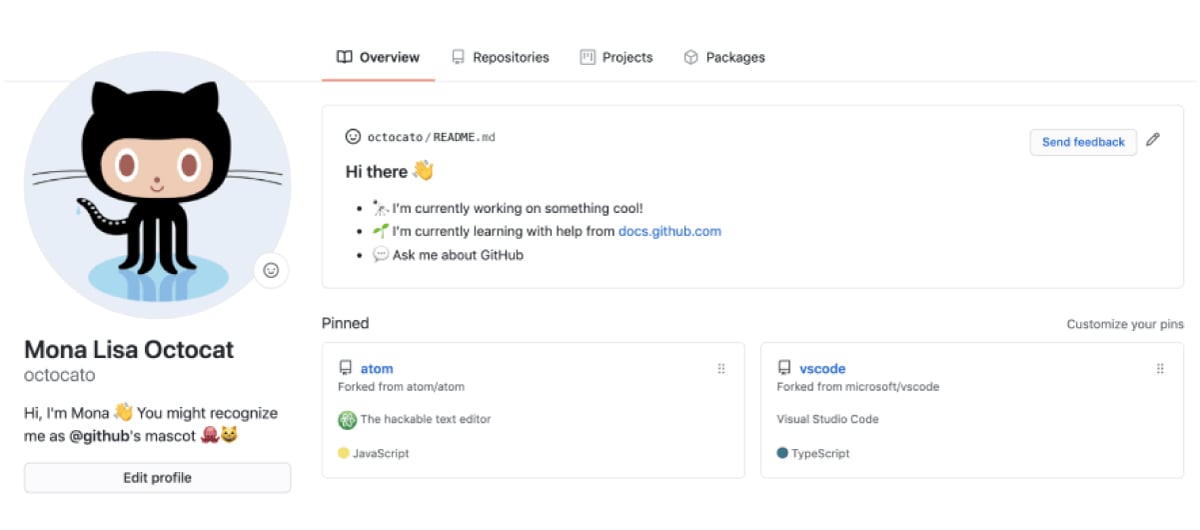
Building up your GitHub profile allows you to showcase your previous work and highlight any projects you’re particularly proud of, which is useful when applying for jobs, or showing off your skills at meetups or conferences.
It also allows you to demonstrate your ability to work on open source projects and collaborate with other developers, which can be critical in the job market.
Develop a Strong Network
Your network is just as important as your education. Here are some ways to build and strengthen it:
LinkedIn is one of the best ways to develop your network if you’re an entry-level software developer. It can help you get ahead by helping you stay engaged with what’s happening in your industry and keep you aware of new technologies and techniques that might be useful for your business.
LinkedIn is also an excellent place to connect with people interested in your work, which can help you build relationships with potential clients and customers.
Online Communities and Forums
By joining or starting an online community, you can connect with other software engineers who might have similar interests and goals. This helps you to gain a deeper understanding of your profession and build relationships that will help you advance in the field.
Find a Mentor
As a software engineer, finding a mentor is a great way to get the help you need to grow your tech career.
A mentor can be someone who has been in your position before and knows what you’re going through, or they can be someone who is already further along in their career than you are. Either way, they can help you identify improvement areas and ensure your goals are on track.
Research the Company You’re Applying to and Tailor Your Resume Accordingly
When looking for a job as a software engineer, it’s essential to do your research on the companies you’re applying to. The more you know about their history and values, the more likely your software engineer resume will be received favorably.
Finding out the company’s future goals can help you tailor your application to align with those goals.
Resources To Find an Entry-Level Job as a Software Engineer
Finding a software engineering job isn’t easy. You must know where to look and what kind of job you want. Here are some resources that can help you get started:
Job Boards
Two main types of job boards advertise entry-level software engineering jobs:
General job boards
Check out Indeed and Glassdoor as starting points. These sites are filled with listings for software engineering jobs all over the country, so you’re sure to find something that interests you.
Niche job boards
You should also look at niche job boards like GitHub and AndroidDev. These sites are specifically tailored to the needs of developers, and they’re sure to have something that fits your bill.
Online Developer Communities
If you’re looking for an entry-level software engineering job, it’s a good idea to start by joining online developer communities such as GitHub or StackOverflow. These communities are great places for learning about new technologies and sharing your knowledge with others.
You can also use these communities to network with other developers who might be able to refer you for jobs or give you honest feedback on your resume or portfolio. And if you’re interested in finding remote work, many of these communities have a strong presence internationally—so it’s worth checking them out.
Marketplaces

Source: Shift
If you’re looking for a software engineering job, you can find one through marketplaces like Upwork.
Upwork is an online marketplace for freelance work. You can sign up for free, then search for jobs by keyword or category. You can also see how many people are applying for each job and the average hourly rate.
FAQs About Getting an Entry-Level Job as a Software Engineer
We’ve got answers to your most frequently asked questions.
Is Software Engineering a Good Career?
Software engineering is an excellent career if you’re interested in working with computers and technology. If you are interested in creating new tools, solving problems, and building something unique, software engineering might be right for you.
Is It Hard To Land a Software Engineering Job?
If you’re looking to become a software engineer, it can be hard to land your first job. Many factors go into getting an interview—and even more come into play when you’re trying to land the job offer itself.
The good news is that there are ways you can increase your chances of success. Make sure your experience reflects the kind of work that companies are hiring for. If not, start building out an impressive portfolio now so it’ll be ready when you need it later on down the line.
Do Software Engineers Without a Degree Get Paid Less?
While most companies require at least a bachelor’s degree for the position, some don’t, which means you can get paid just as much as someone with an engineering degree.
However, your portfolio should reflect your expertise and technical skills. If you want to increase your salary as a software engineer without a degree, you can enroll in a course and get a software engineering certificate.
Can You Become a Software Engineer Without Any Experience?
Yes, you can become a software engineer without experience, but it’s not easy. Although not all entry-level jobs require previous experience in software engineering within a company, you should at least develop a portfolio of personal projects to showcase your skills.
Since you’re here…
Interested in a career in software engineering? Join our mentor-led Software Engineering Bootcamp or our foundational Software Engineering Course if you’re just starting out. We help people make the switch every day (just peep our reviews). You can do it, too!




![Awesome Software Engineering Resumes [+ Tips & Templates]](https://www.springboard.com/blog/wp-content/uploads/2021/05/shutterstock_579082669-scaled-380x235.jpg)
